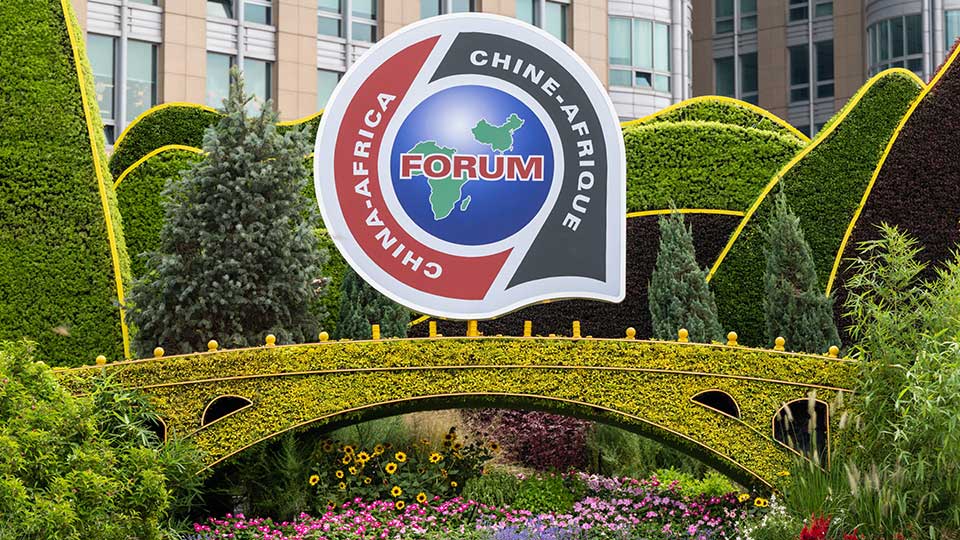
2024’s Forum on China-Africa Cooperation (FOCAC) takes place against the backdrop of two significant trends. First, the role of the Global South, and debate over whether China should be considered a part of it, has become a more prominent question amidst escalating U.S.-China tensions and an increasingly pronounced North-South split around issues like the conflict in Gaza.
Second, the continent is becoming increasingly cynical about so-called “Africa Plus One” summits. FOCAC wasn’t the first of these summits. France arguably coined the concept, and Japan’s Tokyo International Conference on African Development (TICAD), in many ways, set the template for FOCAC.
However, unlike its predecessors, FOCAC was not framed through a traditional lens of aid. Instead, it quickly evolved to operate at a higher level, with successive funding commitments and an expanding scope to respond to African demands. That, combined with eye-catching Chinese infrastructure projects and the other deals that marked the first decades of the early 21st century, established FOCAC as the most important of African summits.
Ironically, FOCAC has become less unique, largely due to its success. Numerous countries have followed its lead in hosting African leaders en masse as part of their own “plus one” summits – from the United States to Russia, to India, and even lesser players like Italy.
The question for Africa becomes how much these summits achieve. Despite ongoing lip service to African complexity, they tend to fall into the “Africa is a country” trap. Their structure risks sidelining Africa’s regional development strategies, falling between the cracks of broad support for continental bodies like the African Union and the bilateral negotiations that still define much of China-Africa engagement.
In addition, the sweeping announcements of “10 connectivity assistance projects” or “10 industrialization and employment promotion assistance projects” that have characterized past FOCACs make it harder to track the specifics of pledges and projects. Adding to this problem is that many of these announcements include old money dressed up as new and retroactively grouping existing projects with future commitments — some of which never come to fruition.
This is true of FOCAC, but it’s just as true for most Africa Plus One summits.
This is partly because of the immense complexity of these commitments, which corral numerous public and private sector actors running numerous projects on widely diverging timelines, all condensed into a single set of announcements. In other words, summits (especially when they release the all-important communiqué) are public spectacles, as dependent on the rules of storytelling as they are on the actual details of dealmaking.
One of the reasons FOCAC has become so influential is that it plays this game of optics better than most. While it replicates the inherent inequality of the 54 countries versus one country structure, this happens within the context of China’s assiduous small-country diplomacy. Unlike in the United States (or even Italy), leaders from African countries frequently receive the full red-carpet treatment, including meetings with Chinese President Xi Jinping during bilateral visits to China. This softens the imperial logic that underlies the Africa Plus One summit structure of FOCAC. Once they show up at FOCAC, many of these leaders have already met Xi and done the “grand tour” of Beijing, Shanghai, Shenzhen, and Guangzhou, which now characterizes official bilateral visits.
In addition, China goes out of its way to emphasize its own status as a developing country, signaling solidarity with the wider Global South and aligning itself with Africa-led initiatives. Even though China has started incorporating more developmental goals into its engagement with the continent, it avoids the dreariness of the U.S. and EU’s ongoing aid focus with its attendant conditionality and preaching.
That said, the run-up to FOCAC 2024 has seen significantly less press attention in Africa than before, raising the question of whether the Africa Plus One summit has run its course and whether it can still generate excitement. This is because China’s engagement with the continent seems more modest than the go-go attitude of the mid-2010s.
This is not to say that the China-Africa relationship has lost importance or even plateaued. Rather, it shows that FOCAC’s success has raised the stakes by drawing increased attention from legacy partners like the G7 and emerging powers like the Gulf Countries.
The main litmus test is whether African countries, whether collectively or individually, can overcome the velvet rope aspect of these summits to make their own deals, set their own terms, and throw their own parties. So far, they haven’t, and the Plus One summit is emblematic of the structural exclusion that the continent suffers under the current global order.
Until Africa takes control and reshapes the Africa Plus One summit to its own ends, FOCAC is likely the best it’ll get. The question is: how long will that be good enough, and which African ambitions will survive the wait?
